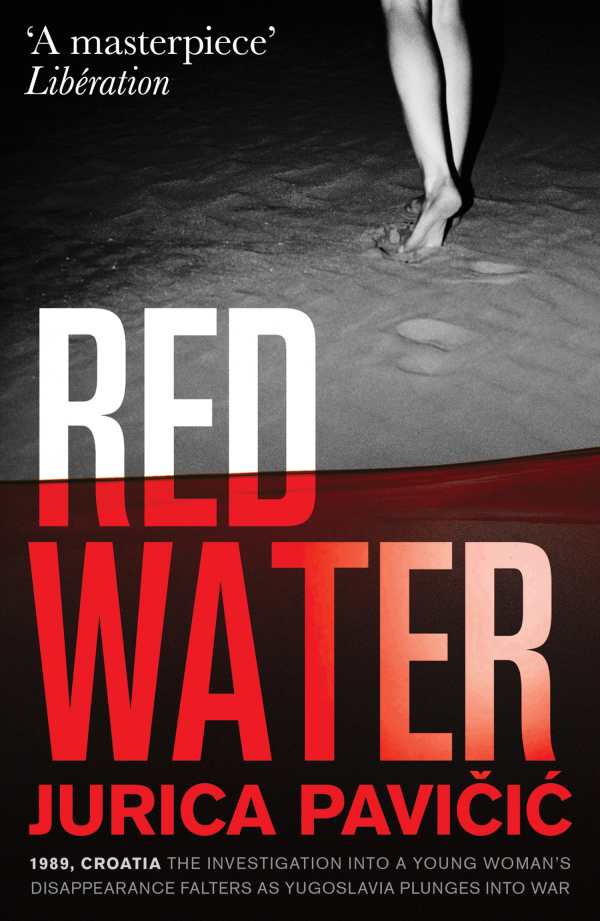Red Water
An unsolved disappearance and Croatia’s independence overlap in Jurica Pavičić’s expansive novel Red Water.
In 1989, Silva disappears near Split, then part of Yugoslavia. A lengthy hunt ensues, continuing decades after the turbulent Yugoslav War. A large cast searches for Silva, including her parents, Mate (her twin brother), Gorki (the overseeing police officer), and Brane (her boyfriend).
Matter-of-factness envelops the early prose; veering into procedural territory, Mate’s initial inquiries after Silva are list-like, noting specific times and his accompanying investigative activities. Spikes of emotion punctuate the book’s progression, as when Silva’s father feels the impulse to beat Silva’s roommate to death after her callous declaration “She had it coming.” As the story progresses, the pervasive atmosphere of loss and alienation intensifies. Still searching for Silva long after almost everyone else has given up, Mate likens his also-persistent mother, Vesna, to “the last keeper of a castle abandoned by its guards. But their ghosts remained. The house was a mausoleum of their mummified shadows.”
Cultural and political hostilities and trends intertwine with personal grievances as the book continues. Vesna’s rage spews over while she’s observing a group of new war recruits, which include Adrijan, a man suspected of murdering Silva. By chance, Adrijan later sees Silva’s missing poster in a distant war zone. After the Yugoslav War, Gorki is drawn back home, but now he acts on behalf of a predatory land developer to buy up land from vulnerable locals. The final parts of the book, if still aching, are surprising as they resolve numerous earlier coincidences and bits of misinformation to form a more complete timeline of Silva’s fate.
In the historical mystery novel Red Water, a girl’s disappearance is measured against the befores and afters of independent Croatia’s formation.
Reviewed by
Isabella Zhou
Disclosure: This article is not an endorsement, but a review. The publisher of this book provided free copies of the book to have their book reviewed by a professional reviewer. No fee was paid by the publisher for this review. Foreword Reviews only recommends books that we love. Foreword Magazine, Inc. is disclosing this in accordance with the Federal Trade Commission’s 16 CFR, Part 255.

